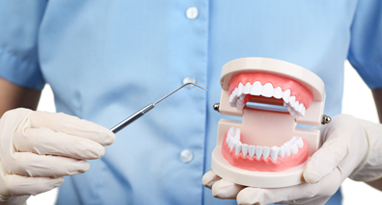Dental and oral health is an essential part of your overall health and well-being. On this World Oral health day, maintaining a healthy teeth and to learn proper oral hygiene habits such as brushing, flossing, and limiting your sugar intake can keep your teeth healthy and avoid costly dental procedures and long-term health issues.
Lasting tooth pain or gum swelling can contribute to larger issues if not treated. Poor dental health is associated with increased risk for conditions such as heart disease. Most dental and oral problems can be prevented with proper oral hygiene. Your oral cavity collects all sorts of bacteria, viruses, and fungi. Some of them belong there, making up the normal flora of your mouth. But a diet high in sugar creates conditions in which acid-producing bacteria can flourish on tooth enamel and causes dental cavities. Bacteria near your gum line thrive in a sticky matrix called plaque. It accumulates, hardens, and migrates down the length of your tooth. This can inflame your gums and cause the condition known as gingivitis. Increased inflammation causes your gums to begin to pull away from your teeth. This process creates pockets in which pus may eventually collect. This more advanced stage of gum disease is called periodontitis.
Common oral health problems
All over the world and across all age groups suffer from common dental problems. Some common oral health problems:
-
Cavities
This one of the most common dental problems and can happen even to infants. Cavities are permanently damaged areas in or around the surface of your tooth that cause tiny holes. They are caused by plaque from food high in sugar or starch content settling on the surface of the teeth..
-
Gum Disease
Gum disease is one of the most common dental diseases adults get. It has three developing stages starting from gingivitis. Gingivitis is a gum disease that is reversible but, if not treated on time it may lead to a more serious problem call periodontal disease. Periodontal disease must be treated as soon as possible as it may also lead to tooth loss.
-
Bad Breath
Nothing is more embarrassing than bad breath. Studies show about 85% of people with bad breath are suffering some other dental problem that is to blame. Bad breath is a common symptom of gum disease, cavities or oral cancer.
-
Dry Mouth
This is a condition where saliva glands are not able to produce enough saliva to keep the inside of the mouth moist. Saliva has antibacterial components that help keep plaque off of teeth surface. It is caused by several things such as smoking, prescription medication, aging or stress. People who are on medication or chemotherapy are at very high risk of dry mouth.
-
Tooth Crowding
It can cause alignment issues that eventually can cause a jaw disorder. Misaligned bites can cause jaw problems that might need surgery to fix. Braces are the best option to treat crowded teeth. Depending on the crowding, orthodontists might even suggest extraction to make room for teeth to shift.
-
Root Infection
A root infection is a serious problem. It’s painful and very uncomfortable. Root infection occurs when bacteria infect the root part of your tooth. It enters the centre of your tooth and attacks the pulp tissue inside. If left untreated it may eventually develop into an abscess. A root canal procedure is highly recommended.
-
Tooth Loss
Many of the above mentioned dental problems can lead to tooth loss. Periodontal disease eventually leads to this if not treated immediately. Tooth decay can also lead to extraction if the tooth can no longer be saved. The same goes for root infections. Dentures or dental implants are recommended for tooth loss.
-
Oral Cancer
Oral cancer is the deadliest dental problem one can encounter. It starts with a small pinkish growth in the mouth. It’s unlikely to be noticed since our mouths don’t innately have smooth surfaces and are naturally pink or reddish in color. A regular visit to the dentist will help detect this who may advice further investigation.
It’s crucial to take the right steps to take care of oral health and to prevent problems. This involves getting the right oral care products, as well as being mindful of your daily habits. Oral disease can be greatly reduced by:
- brushing your teeth at least twice a day
- flossing your teeth at least once a day
- decreasing your intake of sugar
- eating a diet high in fruits and vegetables
- avoiding tobacco products
- drinking fluoridated water
- seeking professional dental care
Poor oral and dental health can contribute to issues with your self-esteem, speech, or nutrition, also affect your comfort and overall quality of life. Many dental and oral problems develop without any symptoms. Seeing a dentist regularly for a checkup and exam is the best way to catch a problem before it gets worse. You can’t always prevent every cavity, but you can reduce your risk of severe gum disease and tooth loss by staying on top of your daily oral care.
